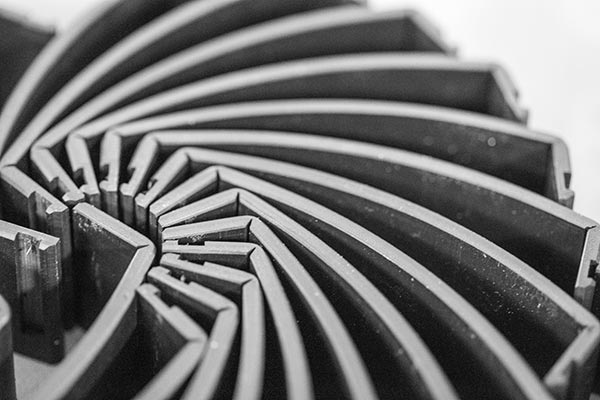- +33 (0)2.35.54.63.40
- sales@ltp.fr
-
La Tôlerie Plastique ZI Route d'Etretat Impasse des thuyas
76930 Octeville-sur-mer France
Thermoforming is a technique which consists of taking material in plate form (glass, plastic, etc.), heating it to soften it, and taking advantage of this elasticity to shape it with a mould. The material re-hardens when it cools, retaining this shape.
In the case of plastic thermoforming, the material used is usually in coil form, as soon as the thickness before thermoforming is under two millimetres. (Wikipedia)
Thermoforming is a process that allows the production of rounded and flowing shapes, but the development and manufacture of a thermoforming mould is essential. Therefore, the first criterion for choice is the quantity of series production, followed by the technical stability of the product.

The development of a thermoforming mould can represent a considerable budget. It can only be profitable for a production quantity of often 5,000 to 10,000 parts per day with a stable electronics configuration.
In addition to the quantity, there is also the stability of the product. For example, imagine 5000 pieces manufactured in five batches of 1000. Between the second and third production run, the board supplier imposes a dimensional change on you. Therefore, your design of the thermoformed plastic housing is no longer suitable and must be modified. As soon as you manufacture a plastic part using a moulding process, you are forced to invest in a new mould. However, the mouldless plastic process, “Sheet Plastics Bending”, allows you to modify your customised plastic housing between each series by configuring our machines for customising the manufacture of your parts.
Size and shape are two other essential elements. Mouldless plastic processing is suitable producing a maximum volume of 2m3. Above this volume, the chemical welding method of assembling plastic sheets made of acrylonitrile butadiene styrene (ABS), polystyrene (PS), polycarbonate (PC), polymethyl methacrylate (PMMA) or polyvinyl chloride (PVC) with a thickness of 2mm to 10mm is no longer suitable.
The shape is also a criterion. Thermoforming allows for rounded, concave, or convex shapes; however, this technology does not allow for sharp angles, which limits its design possibilities.
Give us a call +33(0)2 35 54 63 40.
Let's talk about your project to find the right solution. Our teams are at your service.